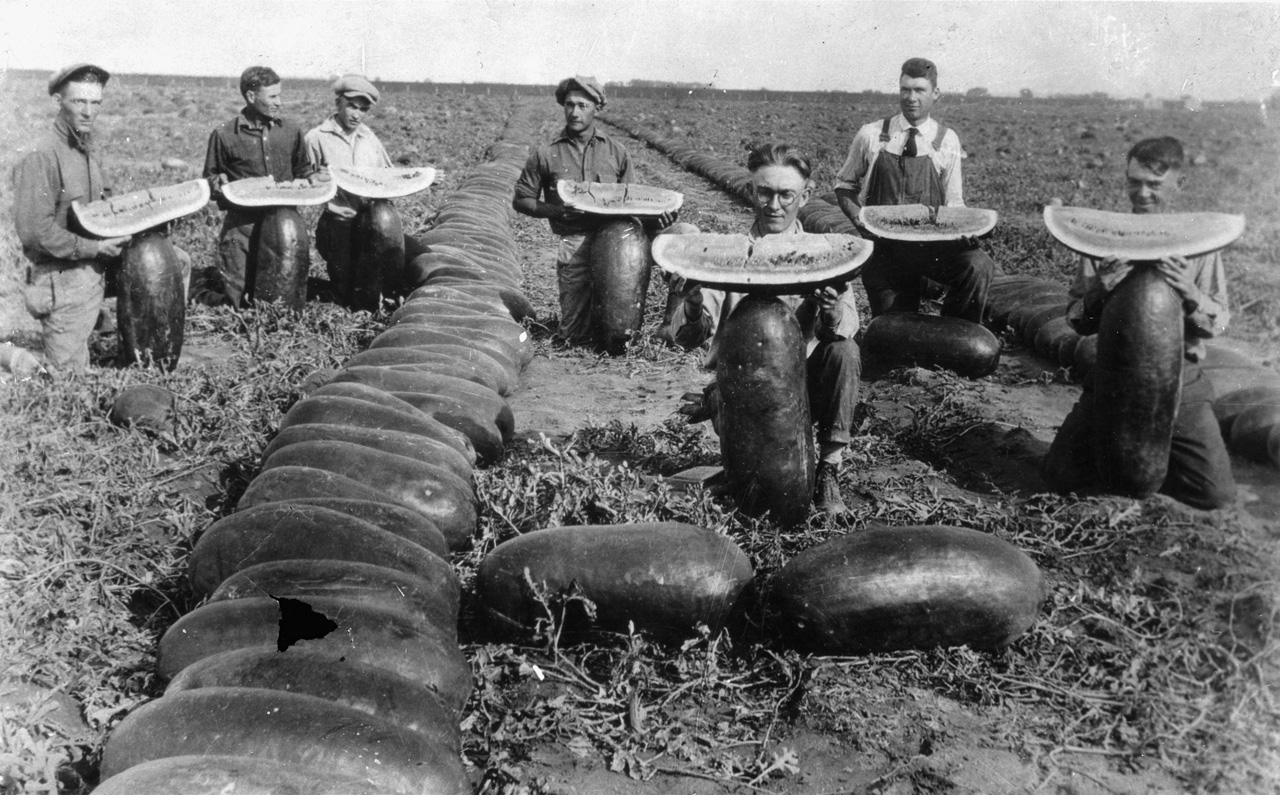The Local newsletter is your free, daily guide to life in Colorado. For locals, by locals.
Late in the summer, Rocky Ford cantaloupes arrive en masse at farmers’ markets and grocery stores’ produce departments across the state. It’s a common misconception that these plump and juicy cucurbits are a specific variety of melon; instead, the name “Rocky Ford” is a designation of origin for any melon—including honeydews and watermelons—grown in a precise swath of Colorado’s Arkansas Valley. (Of course, for many the label “Rocky Ford” still recalls the devastating listeria outbreak in 2011, but the area’s farmers are determined to restore glory to the name.)
“There are several melons that were named Rocky Ford this or Rocky Ford that,” says retired seedsman and plant breeder Larry Hollar. “Now the term means it’s grown in a three-county area around Rocky Ford—and the variety changes every four or five years.” Hollar grew up on these melons: His father took over the then 50-year-old R.H. James Seed Co. in the 1950s and renamed it Hollar Seeds. Today the company sells 31 varieties of melon seeds.
Hollar Seeds was one of several businesses—along with many farms—to set up in the area after G.W. Swink’s 1870s discovery that he could grow perfect melons in Rocky Ford. The location quickly became famous for great cantaloupes, Hollar says. The area’s dry air, cold nights, and hot days mitigate many common water-related disease problems, such as downy and powdery mildew, Fusarium wilt, and rust. And according to farmer Michael Hirakata, the largest packer and shipper of cantaloupes in the region and the president of Rocky Ford Growers Association, the high elevation and big temperature swings produce melons with up to three percent more sugar than California cantaloupes.
In fact, in the early 1900s, melons were regularly shipped to Kansas City and St. Louis, and stories abound of Rocky Fords in fancy East Coast hotels and on passenger trains around the Midwest. “My wife was born and raised in the Twin Cities in Minnesota,” Hollar says. “When her aunt heard that she was marrying me, a melon guy, she said, ‘Oh, we used to get on the train in Minneapolis and take it to Chicago just to eat Rocky Ford melons.’”
SAVE THE DATE: Watermelon Day
Rocky Ford Fairgrounds, August 20
Cantaloupes might be the most familiar produce bearing the Rocky Ford designation, but it all started with watermelons when, in the mid-1870s, G.W. Swink began growing them in Rocky Ford—and hosting free watermelon feasts for locals. Over the decades, watermelons grew to be a major crop for the region. “Watermelons and cantaloupes are tied at the hip down here, so you can’t enjoy one without the other,” farmer Michael Hirakata says. “The watermelons are head and shoulders above any other watermelons throughout the United States.” Swink’s feasts have become a tradition: The 138th consecutive Watermelon Day—complete with free watermelons—will be held at the Rocky Ford Fairgrounds on August 20.









